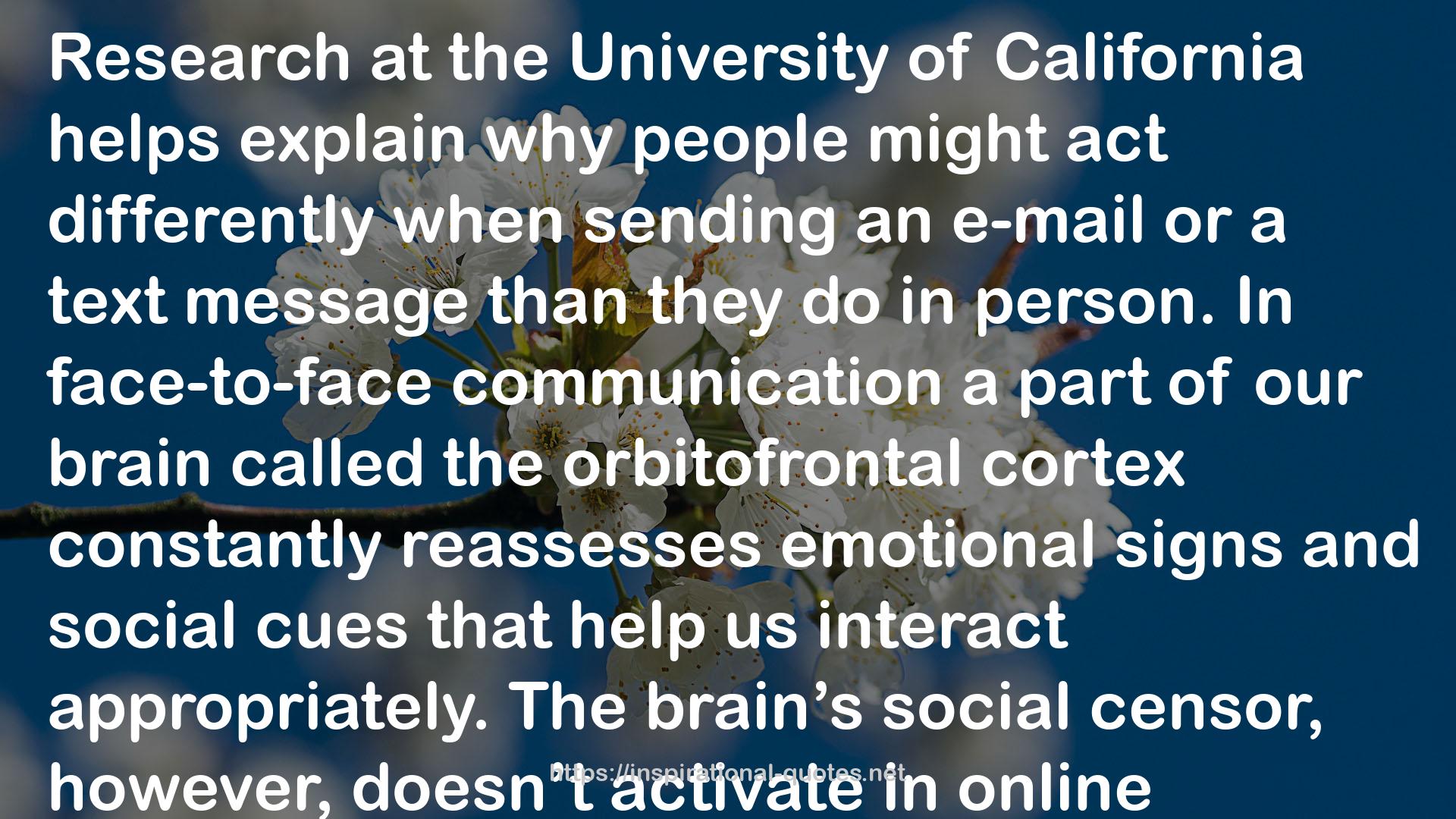" Research at the University of California helps explain why people might act differently when sending an e-mail or a text message than they do in person. In face-to-face communication a part of our brain called the orbitofrontal cortex constantly reassesses emotional signs and social cues that help us interact appropriately. The brain’s social censor, however, doesn’t activate in online communication. That’s why people, not just teenagers, might say something online that they would never say in person. "
― , Why Do They Act That Way?: A Survival Guide to the Adolescent Brain for You and Your Teen
